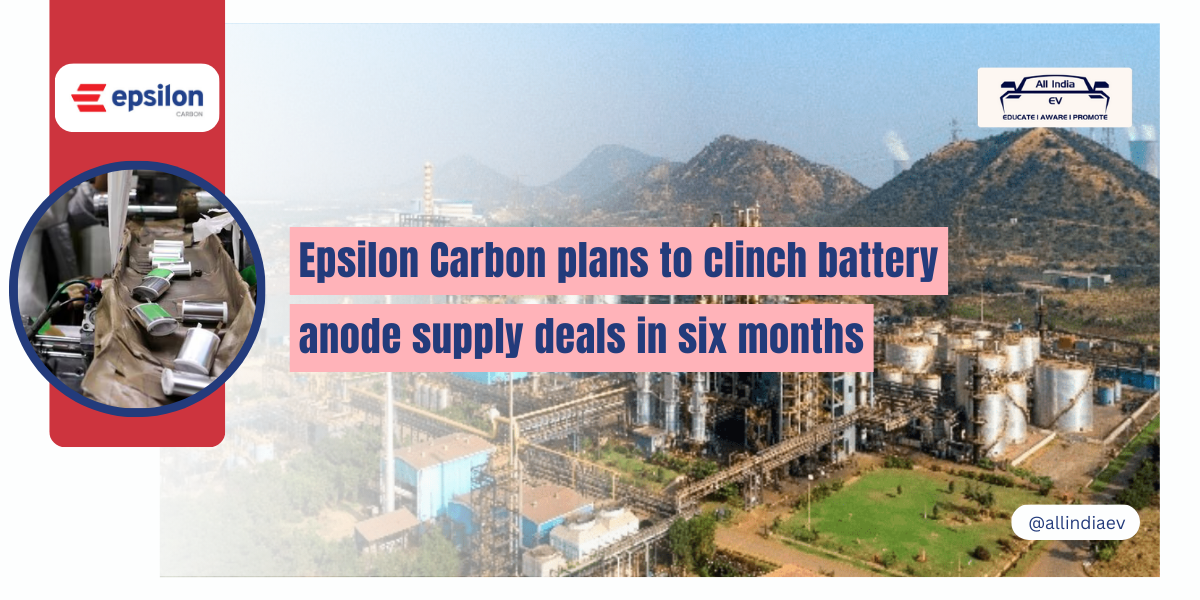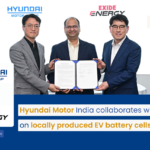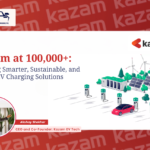
Epsilon Carbon aims 6-Month period for Battery Partnerships
Epsilon Carbon’s subsidiary, Epsilon Advanced Materials, is poised to accelerate its battery anode production plans. The company is actively negotiating take-or-pay agreements with potential customers for its lithium-ion cell anode material. These deals are crucial for securing the financial backing needed to construct new manufacturing facilities in both the United States and India.
Epsilon Advanced Materials had previously demonstrated the capability to meet commercial production requirements, specifically concerning customer qualification at both proposed sites. The signing of these supply contracts will mark an important milestone for the company in terms of its willingness to increase production and satisfy the rising demand in the battery components industry.
Global wings in the anode material “powerhouses”
Epsilon Advanced Materials is poised to revolutionize the battery anode industry with its ambitious plans for two state-of-the-art manufacturing facilities, each of which is designed to produce 30,000 tonnes per annum. Not only will these plants be located in the United States and India but they will also be the biggest in that region outside China, and the latter, being the first such plant in India, will also be a leading supplier of anode material at scale.
The US plant is located in a prime locality to cater to the fast-emerging American market, while the Indian plant is intended to look towards export markets as the primary source of revenue. This reflects Epsilon Carbon’s overall goal in international expansion and represents its long-term vision to play a more integral role in the rapidly growing battery supply chain.
A Nod to Innovation
The company is making significant strides in the battery anode market, with ambitious expansion plans both domestically and internationally. The company aims to establish a substantial presence in the United States, where current anode material capacity stands at 10,000 tonnes per annum. Epsilon’s proposed 30,000-tonne-per-annum plant would significantly bolster domestic production capabilities and reduce reliance on imports.
Beyond the US, Epsilon is also pursuing a similar project in Finland. However, the realization of this venture hinges on obtaining regulatory approval, which is anticipated to take approximately 18 months.
Despite the growing interest in lithium-ion cell manufacturing among Indian conglomerates like the Tata Group, Reliance Industries, and Ola Electric, Epsilon has yet to secure a domestic supply agreement for its anode material. The company’s focus has primarily been on export markets, recognizing the substantial growth potential and demand in these regions.
Epsilon Carbon’s strategic approach highlights its commitment to innovation and its vision to become a leading global supplier of battery anode materials, meeting the increasing needs of the electric vehicle and electronics industries.
Strategic Expansion: A Dual-Focus Approach
The company is strategically expanding its operations beyond anode materials, venturing into the production of cathode materials for lithium-ion phosphate (LFP) cells. While the anode material remains relatively consistent across different lithium-ion cell chemistries, the cathode material varies significantly, impacting the performance and characteristics of the battery.
Epsilon Advanced Materials is exploring the establishment of cathode manufacturing facilities in India, aligning with the growing demand for LFP cells, which are known for their safety and longevity. This dual-focus approach positions Epsilon as a comprehensive supplier within the battery supply chain.
Himadri Specialty Chemicals is also making strides in the Indian market, with plans to manufacture cathode active material for LFP cells. This competitive landscape indicates the increasing importance of domestic production capabilities in meeting the growing demand for battery components.
Epsilon Carbon has earmarked substantial investments for its expansion plans. The company anticipates investing approximately ₹9,000 crore over the next 6-7 years for its anode material plants and an additional ₹5,000 crore for the cathode plant. This commitment underscores Epsilon’s dedication to driving innovation and securing a prominent position in the battery industry.
Epsilon Carbon’s Precursor Advantage
The company’s Carbon’s subsidiary, Epsilon Advanced Materials, is well-positioned to capitalize on the burgeoning market for lithium-ion rechargeable batteries. Moreover, a recent report by Crisil highlighted the strong growth potential for bulk mesophase coke, a critical precursor in the manufacturing of synthetic graphite anodes.
The rating agency emphasized the robust demand for lithium-ion batteries, which is expected to persist over the medium term. This positive outlook provides a favorable environment for companies like Epsilon Carbon, as their products play a vital role in supporting the production of these essential energy storage solutions.
Epsilon Advanced Materials’ expertise in bulk mesophase coke production positions the company to meet the increasing demand for synthetic graphite anodes, a key component in lithium-ion batteries. This strategic advantage underscores Epsilon Carbon’s potential for continued growth and success in the evolving battery market.









